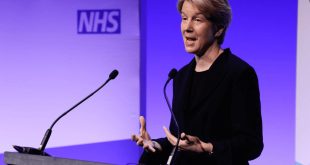Gambling’s harmful impact on young men has once again hit national headlines, as frontline NHS doctors cite that addiction clinics are witnessing a surge in demand for treatment and support for gambling addiction.
As reported by The Times this morning, NHS bosses have called on betting firms to “think hard about the human cost behind their profits”, as the UK’s gambling addiction clinics are “full of young men in football shirts”.
The warning comes ahead of the NHS opening up two new treatment clinics in Southampton and Stoke, adding to a national network of five dedicated clinics commissioned in 2019.
Network figures disclosed to The Times revealed that “599 patients have been referred to the service in the past six months, a 42% increase on the same period last year and up 65% from 2020-21”.
The increase reflects concerns about gambling-related suicides, which are currently recorded at more than 400 each year in England, as clinics report that “one in three patients had attempted suicide; 57% report thinking they would be better off dead.”
Dr Matthew Gaskell, Clinical Lead of the NHS Northern Gambling Service, continues to lead calls for change in how gambling addiction is treated and funded by the government and NHS to better support its current network and research into root causes of gambling addiction.
A key stakeholder in the NHS gambling addiction strategy, Gaskell noted that “three-quarters of patients are men, most in their thirties”, who are likely to be “hooked on online gambling, including in-play betting”.
Gaskell has advised GP surgeries to routinely ask new patients whether they gamble; in the same way, they ask how much alcohol patients drank in a week.
In March, Gaskell was amongst Senior NHS doctors that called for the government to impose a statutory levy on gambling industry revenues to fund the health service’s research, education and treatment (RET) programmes.
The demand followed the NHS breaking its ties with GambleAware, who provided direct funding of gambling clinics – as NHS leaders stated that the network required full independence from the gambling sector.
Senior clinicians have backed proposals by the Social Market Foundation (SMF) that a statutory levy should be adopted with a “new independent body” run by health experts to oversee gambling addiction policies, projects and RET spending.
NHS clinicians hold concerns that the current network has limited oversight on mental health issues caused by gambling harms which will most likely impact vulnerable adults prior to treatment and heighten the risk of suicides.
With such open access to online gambling, Claire Murdoch, NHS England’s Mental Health Director, noted that “experts are looking for the root causes of problem gambling as more addicts turn to the NHS for help amid a mental health crisis.”
“About 2.2 million people are problem gamblers or at risk of addiction, but heading to the local bookmaker on a Friday to place a bet on the weekend’s sport is largely a thing of the past. Most gambling is done by smartphone, giving customers 24/7 access to casinos, bookmakers and slot machines in the palm of their hand.”
The overhaul of RET structure carries the support of Gambling with Lives (GWL), a charity and gambling reform group which represents families bereaved by gambling-related suicide.
GWL campaigns have outlined that UK operators must face a ‘polluter pay’ on gambling addiction, in which RET funds raised must be focused on early intervention and mental health research to prevent suicide and physical harm.
The Betting and Gaming Council (BGC) responded to industry criticism, noting that the UK biggest operators have pledged to fund the RET programmes with up to £100m in funding per year since 2019 – “unlike the alcohol industry, which hands the NHS the bill for problems associated with alcohol”.
Furthermore, the trade body points to mandatory comprehensive safeguards adopted by operators that have witnessed a year-on-year drop in children and younger demographics engaging with gambling.
Aware of conflicts, the UK Gambling Commission (UKGC) has restructured its research unit and data to provide stakeholders with greater depth of analysis on the triggers of gambling harms on specific audience segments.
The delayed proceedings of the Gambling Review have frustrated all industry stakeholders, who continue to wait for critical judgements on advertising, customer affordability, compliance demands, football sponsorship, wagering limits and governance duties.
Stakeholders remain in the dark as to whether the government will proceed with imposing a statutory levy on gambling addiction and the further overhaul of RET duties.
Prior to the latest delay of the Gambling Review’s White Paper, it was reported that the government might determine specific decisions on the most contentious issues facing UK gambling in which a statutory levy on addiction would be treated as a separate matter from the Gambling Review.









